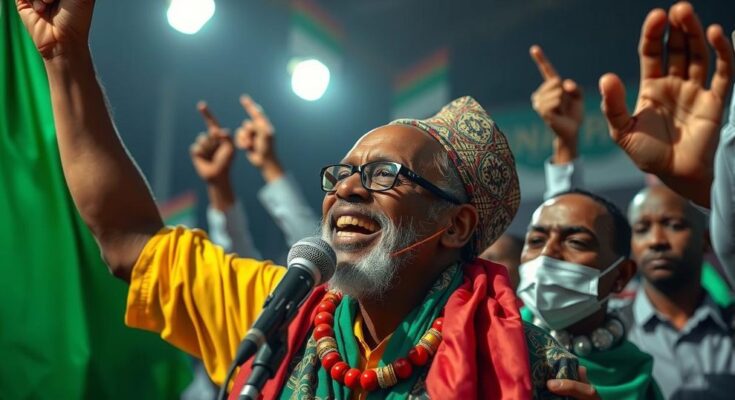Abdirahman Mohamed Abdullahi won Somaliland’s presidential election, securing over 50% of the votes, defeating incumbent Muse Bihi Abdi. The Waddani Party campaigned for democratic reform and economic improvement. Somaliland continues to operate independently from Somalia, facing challenges concerning agreements with Ethiopia. The election outcome raises hopes for better inter-regional relations.
In Somaliland, the recent presidential election saw opposition leader Abdirahman Mohamed Abdullahi of the Waddani Party secure victory with over 50% of the vote, according to the electoral commission’s announcement. Abdullahi, aged 69, previously served as the speaker of Somaliland’s parliament in 2005. His campaign focused on democratic reforms, social cohesion, and economic resilience, addressing youth unemployment. The ruling president, Muse Bihi Abdi of the Kulmiye Party, received just over 30% of the votes as he sought a second term. This election faced delays due to funding issues, resulting in heightened anticipation among Somaliland citizens. Somaliland, which declared independence from Somalia during the civil conflict in 1991, operates with its own government and security system, despite not being internationally recognized. The region has achieved a level of political stability that contrasts starkly with the ongoing security challenges in Somalia. Recently, a controversial agreement with Ethiopia granting Somaliland access to the Indian Ocean has raised tensions with Somalia. Critics, including the Waddani Party, argue that the deal lacks economic benefits for the region. Reactions from Somali leadership following the election reflect optimism for improved relations. Former Prime Minister Hassan Ali Khaire expressed hope that the newly elected president would foster peace and unity among the Somali people. The president of Djibouti, Ismail Omar Guelleh, extended congratulations to Abdullahi, emphasizing regional solidarity as a priority for the incoming administration.
The article discusses the implications of the recent presidential election in Somaliland, where the opposition leader achieved a decisive victory over the ruling party. Somaliland, which functions autonomously from Somalia, has developed its political structures and governance despite lacking international recognition. The election outcome indicates a potential shift in policy direction toward democratic reform and economic improvement, reflecting the electorate’s desire for change after years of political stagnation. Furthermore, the emerging geopolitical dynamics between Somaliland, Ethiopia, and Somalia display the complexity of regional relationships and the impact of international agreements on local governance.
The successful election of Abdirahman Mohamed Abdullahi signifies a potential turning point for Somaliland, potentially ushering in progressive reforms and enhanced economic policies. His administration must navigate both regional tensions and the expectations of a populace eager for improvement, particularly in terms of youth unemployment and socio-economic advancements. The favorable responses from Somali leaders and neighboring Djibouti illustrate a hopeful avenue for strengthened relations moving forward.
Original Source: www.seattletimes.com




